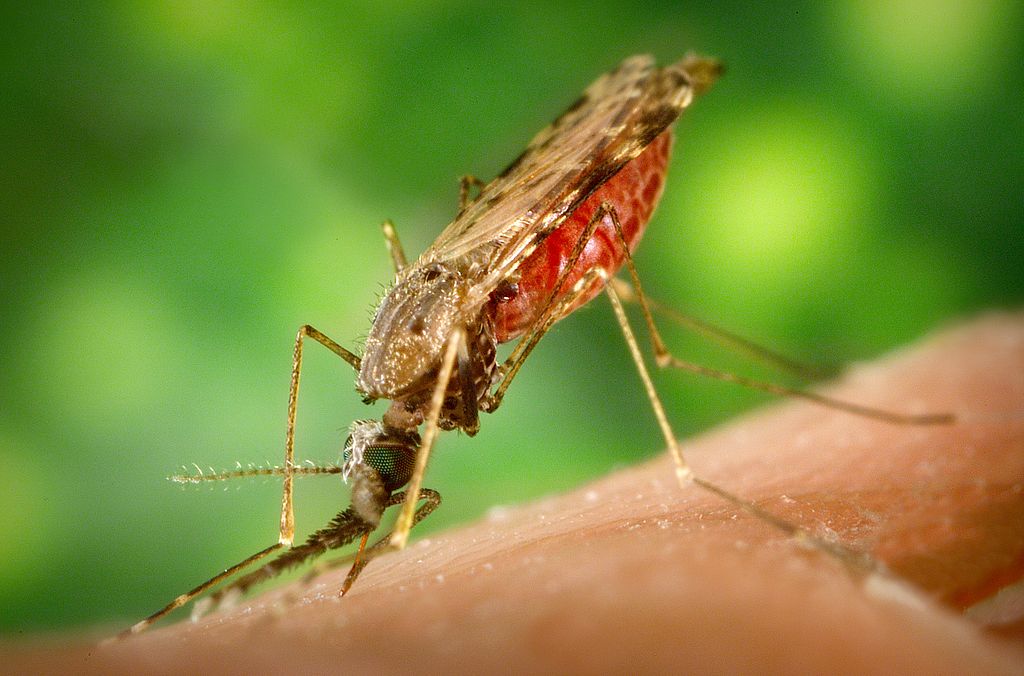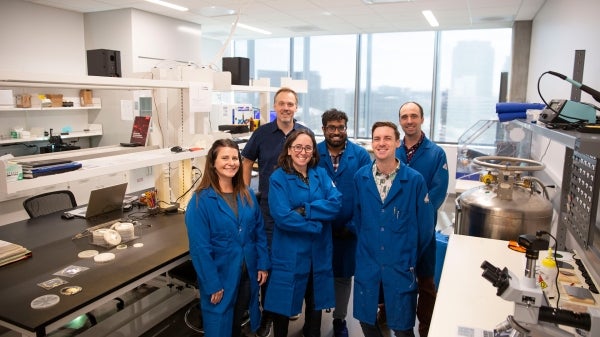Editing nature: A call for careful oversight of environmental gene editing

ASU School of Life Sciences Professor James P. Collins is part of a group of researchers calling for the formation of a new global body that would provide neutral oversight on the use of gene-editing technologies. Photo by Deanna Dent/ASU Now
In Burkina Faso, the government is considering using genetically modified mosquitoes in hopes of eradicating malaria. In Nantucket, Massachusetts, officials are looking at gene editing as a tool in the fight against Lyme disease. And scientists are using gene technology to adapt coral to changing ocean conditions from the Caribbean to the Great Barrier Reef.
Yet for all the breathtaking promise of these technologies, there remain profound concerns about the potential unintended consequences of releasing gene-edited organisms into the environment — and the lack of government oversight.
In a new paper published in the journal “Science,” an interdisciplinary research group from Arizona State University, Yale and many other academic institutions argues for new global governance to assure a neutral and informed evaluation of the potential benefits and risks of gene editing. They argue that the complex nature of these technologies requires, on a case-by-case basis, careful and judicious review — a decision-making process that must include the local communities that would feel the biggest and most immediate effects.
James P. Collins, the Virginia M. Ullman Professor of Natural History and the Environment at ASU's School of Life Sciences who co-authored the paper, is calling for careful risk assessment.
“The burden of infectious diseases such as malaria or the Zika virus is a heavy one for communities to bear,” said Collins, who co-chaired a National Academy of Sciences committee that evaluated the responsible use of gene editing technology. “And it’s a consideration that really has to be taken into account as individuals think about whether these technologies should be developed and then released into the environment. At the same time, in the area of unintended consequences, you really want to have done the very best work possible, the very analysis possible, in terms of risk assessment.”
“The biggest risk right now with this technology is the uncertainty associated with it,” said Natalie Kofler, an associate research scientist at the Yale School of Forestry & Environmental Studies and lead author of the paper. “In places like Burkina Faso, for instance, it is being touted as a silver bullet to get rid of malaria. But these technologies also have the potential to forever change the genetic makeup of species, or even drive certain species to extinction. Lack of global governance puts our planet at risk.”

A female Anopheles albimanus mosquito feeding on a human host. This species is a vector of malaria, mainly in Central America. Photo: James Gathany, CDC, Wikimedia Commons
In the paper, the authors propose the formation of a new coordinating global body with the power to convene communities, developers, governmental organizations, and NGOs to assure careful and inclusive deliberation over all proposals. Such an organization would provide neutral oversight over decision-making and integrate diverse expertise and perspectives, including participants from impacted local communities.
“Confronting this challenge goes beyond just the inclusion of empirical, scientific data, to also bring in value systems, ethics and relationships with nature, relationships with technology and historically marginalized voices to make a fully informed decision,” Kofler said. “Our proposal provides a blueprint on how to enact a new model of governance, one built on the integration of empirical and normative inputs, that includes diverse expertise and worldviews.”
The paper was inspired by the Editing Nature Summit, chaired by Kofler and hosted at Yale in the spring of 2017. During the two-day event, participants from a range of disciplines grappled with the ethical questions surrounding the development and deployment of gene editing technologies into the environment. Of critical importance, they concluded, are the questions of who gets to decide what technologies are used and the process by which they reach that decision.
The co-authors, who all participated in the summit, represent 12 different academic institutions and more than a dozen disciplines, including ecologists, geneticists, philosophers, policy experts and journalists.
In the paper, they looked in particular at CRISPR (Clustered Regularly Interspaced Short Palindromic Repeats) gene editing and other related technologies like gene drives, which are designed to spread genetic changes — including traits such as infertility — through populations of species.
But if these technologies have the potential to eliminate threats to public health or ecosystems, little is known about potential side effects, such as unwanted mutations and new evolutionary resistance.
“There are many proposals to release gene edited organisms into the wild and even actively drive them into the genomes of native wild populations to address a wide range of environmental issues,” said Oswald Schmitz, the Oastler Professor of Population and Community Ecology at Yale's School of Forestry & Environmental Studies and director of the Yale Institute for Biospheric Studies.
“But this is all proceeding at a heady pace with very little discussion with potentially affected communities or even formal safeguards in place to ensure that these well-intentioned technologies don’t unintentionally spread globally to destroy ecosystems and human welfare and cultures that rely on them.”
Complicating the discussion is the fact that, in some cases, the proposed gene-editing strategies could mitigate very real public health threats, such as the life-or-death consequences of malaria in parts of Africa, said Collins.
“It’s just really so important that we give every consideration to what the larger implications would be of releasing these organisms,” he added. “It’s also vital that we rely on context and history to guide us in terms of being willing to move ahead with these important areas of research, but also that we do it in a way that is cautious, judicious, and transparent.
“That way, individuals and society can then make an informed judgment as to which of these technologies should be deployed and how that should be done.”
More Science and technology

ASU professor honored with prestigious award for being a cybersecurity trailblazer
At first, he thought it was a drill.On Sept. 11, 2001, Gail-Joon Ahn sat in a conference room in Fort Meade, Maryland.…

Training stellar students to secure semiconductors
In the wetlands of King’s Bay, Georgia, the sail of a nuclear-powered Trident II Submarine laden with sophisticated computer…

ASU startup Crystal Sonic wins Natcast pitch competition
Crystal Sonic, an Arizona State University startup, won first place and $25,000 at the 2024 Natcast Startup Pitch Competition at…